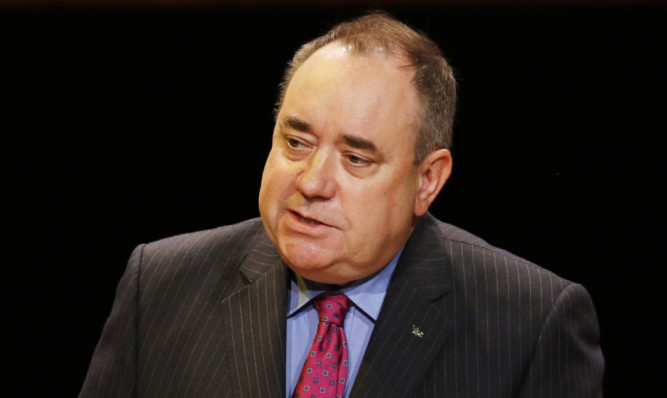Scotland must remain a “something for something society” the First Minister said as he reaffirmed the Scottish Government’s commitment to universal benefits.
Alex Salmond told delegates at the Scottish Trades Union Congress (STUC) in Perth that the Scottish Parliament is being asked to reaffirm the social contract it has upheld through successive administrations since 1999, including free personal care and free access to higher education.
The First Minister said: “In the face of the social and economic bedlam of the 1980s, there was a need, an overwhelming urgency, to establish a parliament for Scotland that could express a different concept of society one based on a sense of public good and the common weal.
“And by and large, since 1999, the Scottish Parliament and this is the parliament as a whole, rather than any one party has upheld that contract.
“Today the Scottish Parliament is being asked to reaffirm its commitment to universal public services not a something for nothing country but a something for something society.”
The First Minister also used his address to reaffirm the Scottish Government’s joint working with trade unions, describing union rights as essential for “strong workplaces and a strong economy”.
He said the union movement would continue to play a “valuable and important role” in Scottish life as he gave a guarantee that the position of the trade unions was secure with his administration.
The congress will hear how members are concerned about the labour statistics in ongoing straitened economic times.
STUC general secretary Grahame Smith said: “Politicians of all complexions continue to play fast and loose with employment data and are guilty of painting a far too rosy picture on employment.
“Whilst it is true that we have seen a small recovery recently in unemployment figures in Scotland, this is largely due to people falling into inactivity but not claiming jobseeker’s allowance.
“Even where jobs are being found, they are largely part-time and insecure. We estimate under-employment in Scotland to be around 500,000.
“The analysis of ONS figures we are publishing today indicates that long-term youth unemployment in Scotland is 17 times higher than it was pre-recession, and that generally Scotland does not compare favourably with the rest of the UK on youth employment trends.”
STUC analysis will also be published which, it is claimed, shows real terms wages in Scotland have fallen by an average of 6.4% since the onset of the economic crisis.
It states the median wage earner is £27.12 a week, or £1,410.24 a year, worse off than if wages had kept pace with inflation.
